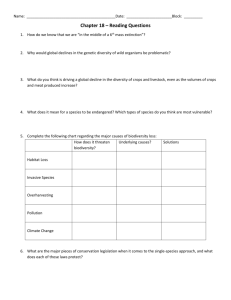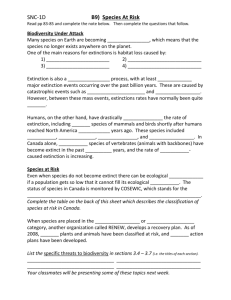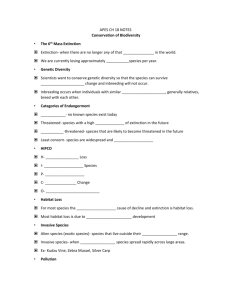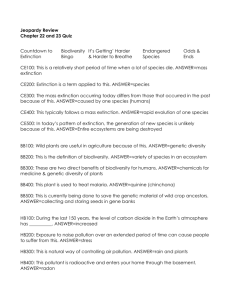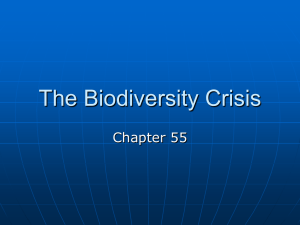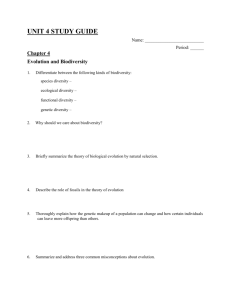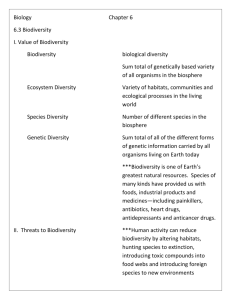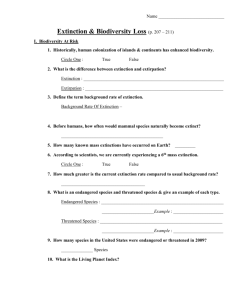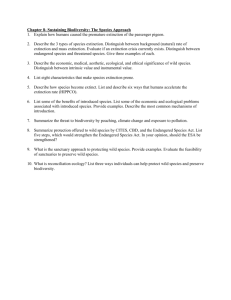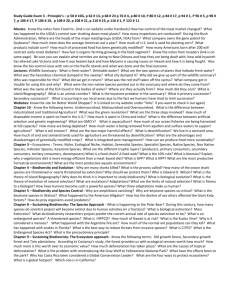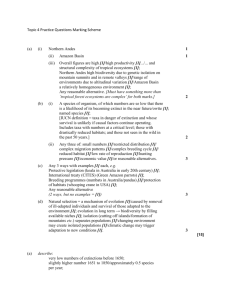col-260- environmental science quiz -2
advertisement
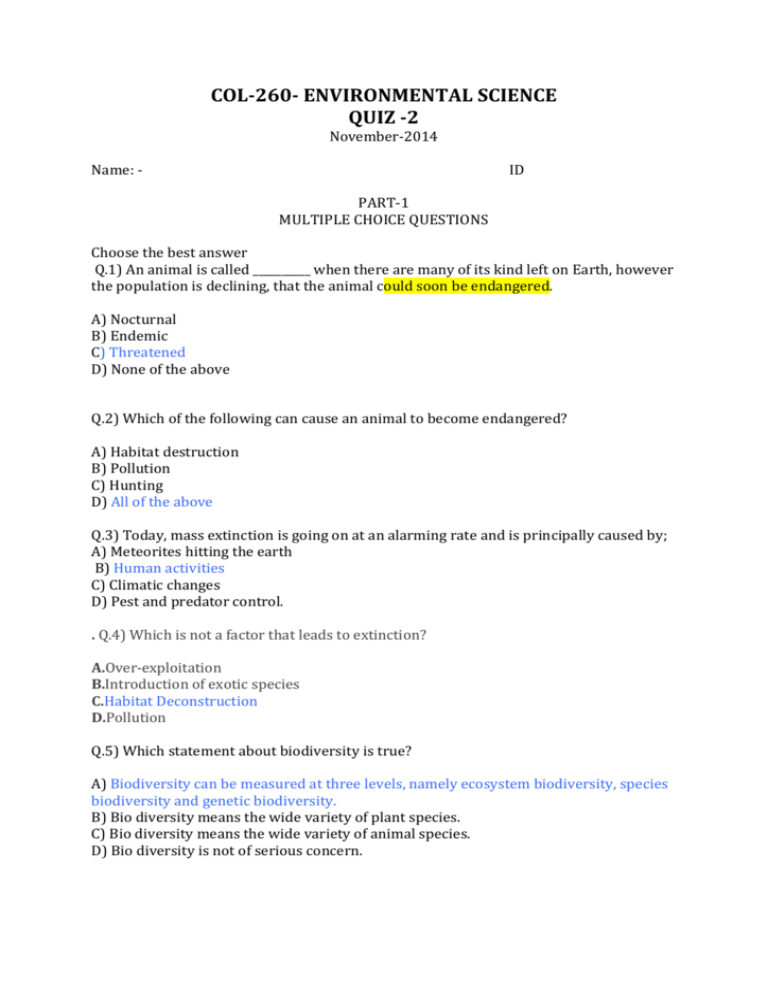
COL-260- ENVIRONMENTAL SCIENCE QUIZ -2 November-2014 Name: - ID PART-1 MULTIPLE CHOICE QUESTIONS Choose the best answer Q.1) An animal is called __________ when there are many of its kind left on Earth, however the population is declining, that the animal could soon be endangered. A) Nocturnal B) Endemic C) Threatened D) None of the above Q.2) Which of the following can cause an animal to become endangered? A) Habitat destruction B) Pollution C) Hunting D) All of the above Q.3) Today, mass extinction is going on at an alarming rate and is principally caused by; A) Meteorites hitting the earth B) Human activities C) Climatic changes D) Pest and predator control. . Q.4) Which is not a factor that leads to extinction? A.Over-exploitation B.Introduction of exotic species C.Habitat Deconstruction D.Pollution Q.5) Which statement about biodiversity is true? A) Biodiversity can be measured at three levels, namely ecosystem biodiversity, species biodiversity and genetic biodiversity. B) Bio diversity means the wide variety of plant species. C) Bio diversity means the wide variety of animal species. D) Bio diversity is not of serious concern. Q.6) In order to prevent the largest cause of extinction, we must focus on: A) B) C) D) Habitat loss Pollution Climate change Over exploitation Q.7) A biodiversity hotspot is that area where: A) B) C) D) Rate of species extinction is high There is rich biodiversity, but threatened by habitat loss Human population is less Animals should be brought together Q.8) Which among these is the correct statement? A) Species have only instrumental value B) Species have only intrinsic value C) Species have both instrumental and intrinsic value D) Species have no intrinsic or instrumental value Q.9) The number of species that become extinct due to habitat destruction is greatest in _______ ecosystems. A) Temperate B) Tropical C) Arctic D) Desert Q.10) Species introduced to regions outside their original range that spread widely and become unduly abundant, at a cost to the native species of the region, are known as A) Endemic. B) Fragmented. C) Exotic D) Keystone Q.11) Which of the following kinds of extinction has been linked to collisions( hitting) of comets or asteroids with earth? A) Background extinction B) Mass extinction C) Current extinction Q.12) Conservation of global biodiversity is best served by directing efforts toward areas of: A) High diversity. B) High endemism. C) Both A and B Q.13) The Kudzu vine is useful in Japan as a form of erosion control and as animal feed. It was introduced to the United States in 1876 and promoted as a forage crop. It was soon discovered that the growing conditions in the Southern United States were perfect for the vine. In addition, the vine was not controlled by freezing winters, as it was in Japan. It soon became an ecologically damaging pest weed. It is an example of: A) B) C) D) Indicator species Invasive species Keystone species Endemic species Q.14) Which groups of organisms are most in danger of extinction? A) Those with small population. B) Those that migrate and need special habitats C) Those with large populations and breed quickly D) Both (A) and (B). Q.15) Animals that depend on the cold weather in order to live like the Emperor Penguins and the Polar bears are now in great danger because of the climate changes caused by:A. Global warming B. Ozone depletion C. Condensation D. None of the above PART-II Q.16) Give an example of each of the following types: - (4pts) a) b) c) d) Endemic species from UAE: - Wonder Gecko or Ghaf tree Keystone species from UAE: - Bluebottle fly Indicator species: - Trout fish Endangered species: - Siberain tiger, Arabian oryx Q.17) Which are the three characteristics that increases the risk of a species becoming extinct? (3pts) 1) Small geographic range 2) Specific habitats 3) Sparse population Q.18) What according to you are the two major threats to ecotourism in UAE? (3pts) 1) Activities such as sand duning and quad biking carried out during a desert safari can spoil the ecosystem. 2) As UAE is developing as a recognized tourist place, the country can face excessive population pressures. 3) Locals can get pushed out; they will have to face competition in securing jobs. 4) Snorkeling and scuba diving activities can threaten or damage coral reefs.
